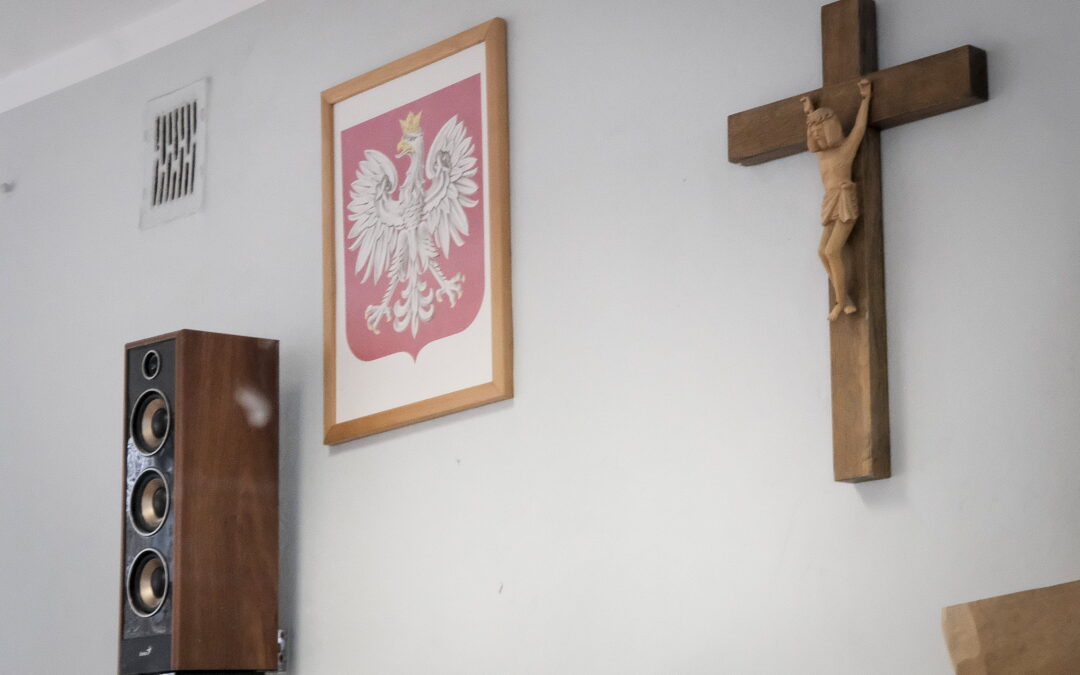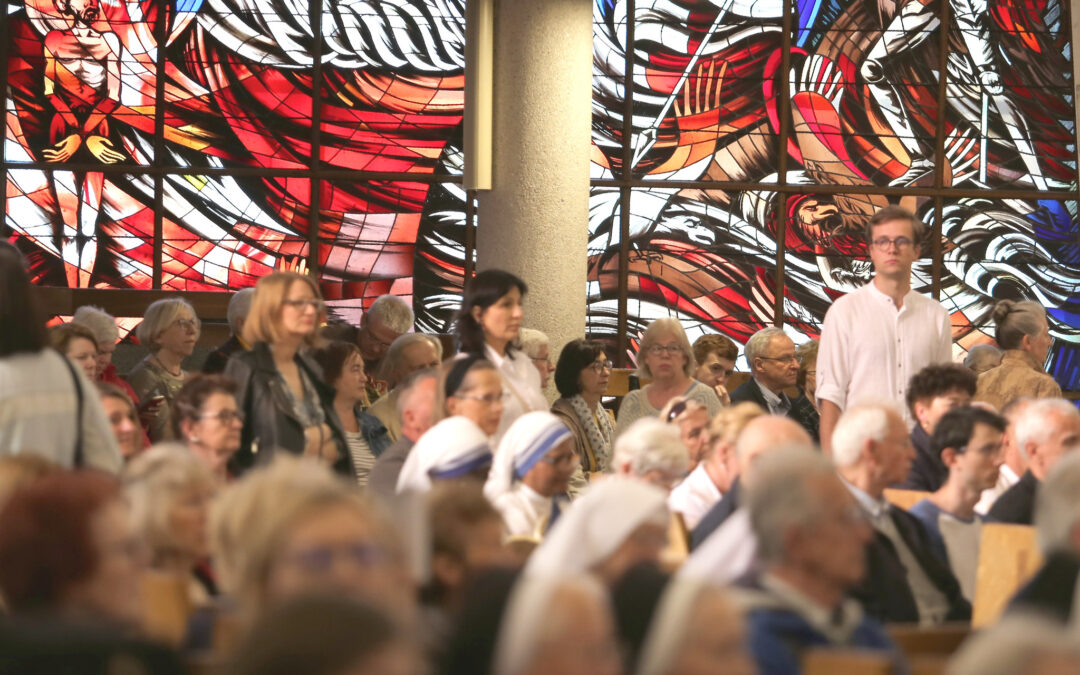The mayor of Warsaw has banned the display of religious symbols such as crosses from city hall, making it the first city in Poland to do so. He has also informed officials that they must respect the rights of same-sex couples and people’s preferred pronouns.
News of the regulations were first reported today by Gazeta Wyborcza, a leading daily newspaper. It notes that the policies are part of new internal guidelines intended to counteract discrimination.
“Warsaw is the first city in Poland to adopt such a document,” Monika Beuth, the spokeswoman for mayor Rafał Trzaskowski, told the newspaper.
Warszawa zakazuje symboli religijnych w urzędzie miasta. Na biurku też nie można mieć krzyżyka #wyborcza #Warszawa https://t.co/Dq784ax2m0
— Gazeta Wyborcza.pl (@gazeta_wyborcza) May 16, 2024
Under the rules, crosses cannot be hung on walls, something that is common in state offices in Poland. Staff also cannot display religious symbols on their desks. All official events are also now to be secular in nature, so therefore should not include any kind of prayer.
However, the ban does not apply to “religious symbols for personal use worn by people working in the office, for example in the form of a chain, tattoo or armband”, reports Gazeta Wyborcza, citing the new rules.
Trzaskowski, who was re-elected for a second term as mayor last month, is a deputy leader of the centrist Civic Platform (PO) party that forms the main part of Poland’s ruling coalition. In 2021, PO leader – and now prime minister – Donald Tusk called for the removal of crosses from public buildings.
Opposition leader Donald Tusk has called for crosses not to hang in public places such as schools and parliament.
His remarks were condemned by a government minister, who accused Tusk of promoting “the dictatorship of leftism and atheism like in the West” https://t.co/mrUvJ1IBZT
— Notes from Poland 🇵🇱 (@notesfrompoland) August 6, 2021
Warsaw’s new guidelines also require staff to respect the rights of same-sex couples by, for example, enabling people to collect official documents on behalf of their partner or to contact schools regarding the child of their partner.
Currently, under Polish law same-sex relationships do not have any form of legal recognition, although Tusk’s ruling coalition has pledged to introduce civil partnerships for such couples.
Officials in Warsaw are also now required to respect the choice of pronouns favoured by someone they are dealing with.
“In the case of a transgender person whose appearance may differ from stereotypical ideas related to gender recorded in official documents, address him or her with the name or gender pronouns that he or she indicates,” reads the document. A nonbinary person should be asked for their preferred pronouns.
A Polish university has become the first in the country to allow transgender students to register their preferred name.
"To learn well, you have to feel safe," says the Jagiellonian University, which is the oldest in Poland https://t.co/LapBDYnar3
— Notes from Poland 🇵🇱 (@notesfrompoland) October 4, 2020
The new guidelines also include other terminological requirements. Instead of “victim of violence”, officials should refer to a “person experiencing violence”. Instead of “mentally ill”, they should say “a person in mental health crisis”. They are encouraged “whenever possible to try to use gender-neutral terms”.
The document also advises staff to make sure that, when a resident is unable to climb stairs, for example due to a disability, they are met on the ground floor.
Left-wing councillor Agata Diduszko-Zyglewska welcomed the changes. “It is good that there are provisions covering principles related to inclusive language, care for people with disabilities and religious neutrality,” she told Gazeta Wyborcza.
Asked whether banning religious symbols is itself a form of discrimination, Diduszko-Zyglewska disagreed, saying that “implementation of the constitutional provision on state neutrality is a necessary condition for the religious freedom of all citizens…Offices must treat all clients equally”.
Is it OK to refer to a black person as "murzyn" in Polish?
Should women's professional titles take feminine endings?
Is "homosexualiści" an acceptable term for gay people?
The University of Warsaw has issued a guide on "non-discriminatory language" https://t.co/559uuqrRWZ
— Notes from Poland 🇵🇱 (@notesfrompoland) January 27, 2020
However, the measures have been criticised by figures associated with the national-conservative Law and Justice (PiS), Poland’s main opposition party.
Tomasz Bocheński, who unsuccessfully stood as PiS’s candidate against Trzaskowski in last month’s elections, today called the mayor “a fanatical leftist ideologue who is trying to introduce extreme leftist ideology to Warsaw, contrary to the legal order and customs prevailing in Poland”.
One of the party’s deputy leaders, Mariusz Błaszczak, shared news of Warsaw’s guidelines on social media along with a quote by Jerzy Popiełuszko, a Catholic priest murdered by communist agents.
“There are invisible prisons…of systems and regimes…[that] not only destroy the body, but they reach further, they reach the soul, they reach deep into true freedom,” reads the quote.
Skandal❗️ Trzaskowski zakazuje krzyży w urzędach. pic.twitter.com/mNoWVfygNv
— Tobiasz Bocheński (@TABochenski) May 16, 2024

Notes from Poland is run by a small editorial team and published by an independent, non-profit foundation that is funded through donations from our readers. We cannot do what we do without your support.
Main image credit: Piotr Skornicki / Agencja Wyborcza.pl

Daniel Tilles is editor-in-chief of Notes from Poland. He has written on Polish affairs for a wide range of publications, including Foreign Policy, POLITICO Europe, EUobserver and Dziennik Gazeta Prawna.



















